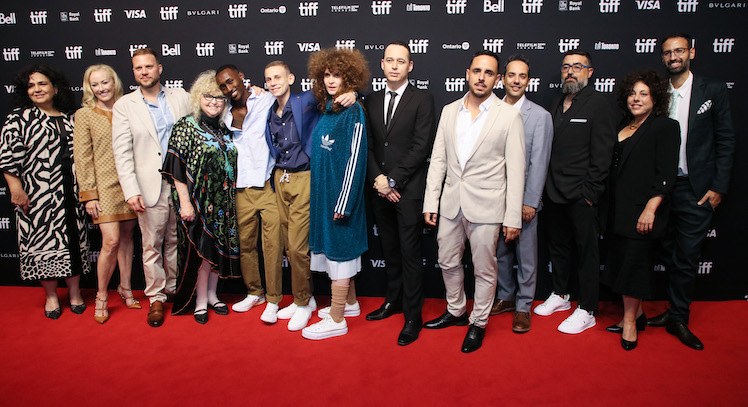I was trying to figure out what it was that I liked so much about Bad Boy, the new Israeli TV series that premiers on Netflix today. The acting is excellent, the writing is solid—it’s a good show. But then it hit me: The fact that there is no larger significance to the show is what is so significant about it. It is “merely” a massively successful (in Israel, at least so far) Israeli artistic endeavor with an undercurrent of political normalcy.
And finding a home on Netflix means it has gone global. Israelis are people again—complex humans with their own problems and their own triumphs and their own quandaries and their own personal lives that have nothing to do with The Conflict. Israelis exist outside the simple character sketch drawn up by international media, and Bad Boy is a perfect example of why that’s so important.
Bad Boy’s pedigree is part of the story. It was created and written by Ron Leshem, who was behind the original, Israeli version of the MAX hit Euphoria, and Hagar Ben-Asher, producer of the Peacock series adaptation of the bestselling novel Long Bright River. And the story is based on the real-life experiences of Daniel Chen, who plays himself.
Chen’s protagonist is Dean Shaiman, a brilliant but volatile 13-year-old boy in and out of juvenile prison for increasingly serious crimes. Chen plays the grown-up Dean, who has changed his name to Daniel and tells his life story as part of a stand-up comedy set, while the bulk of the show consists of flashbacks. We watch as young Dean struggles growing up in a broken home, goes through the court system, the prison, and foster system, only to seemingly get sucked into a vicious cycle of recidivism. We know he comes out OK though from the start because of Daniel’s narration.
That stand-up routine mostly provides laughs but it does offer one source of tension. At some point in the set, Daniel realizes that an old juvi mate of his is in the audience. This is no ordinary juvi mate though: It’s the grownup Freddy Soosan, Daniel’s cellblock tormentor. Backstage, Daniel freaks out, a reminder that his comedy is covering some deeply baked-in trauma. It also makes the viewer question whether Daniel really got his life together.
Politics almost never intrudes, and when it does it’s fleeting. About halfway into the eight-episode series, young Daniel (still going by Dean back then) ends up back in jail, and this time the Jewish and Arab inmates fight over prayer space. Dean expresses his surprise to a guard, saying the two groups never had a problem before. The guard reminds Dean that the last time he was in prison was before the intifada.
It’s the fourth episode that really shines. I kept rewatching the screener this week to make sure I caught all the nuances of the suddenly complex plot. That episode puts friendship under the microscope in raw ways, with young Daniel trying to forge relationships with his inmates and, before that, with fellow youth criminals on the outside. Since he doesn’t have a healthy home life, he doesn’t know how to build healthy relationships and he doesn’t trust anyone.
When a much-feared inmate known as Zorro takes him under his wing, Daniel seems to backslide: He leaves prison the first time determined to keep up his friendship with Zorro, the fracturing of which seems to drive him back to prison, where he can share a cell with the older-brother figure who Zorro becomes. He half-jokingly suggests the two plan for a life in prison because that’s where they truly shine. “A life sentence of freedom,” young Daniel calls it in one of the more profound moments in the series.
The 18-year-old Guy Manster plays the younger version of Daniel magnificently. Leshem seems to have another hit on his hands—he also created the original, Israeli version of what became Homeland in the U.S., and there’s talk of a U.S. studio producing an American adaptation of Bad Boy.
Early in the war that followed Hamas’s Oct. 7 slaughter, a fair amount of Israeli television and movie production for global studios was put on ice. But, as Bad Boy shows, the Israeli talent pool is simply too strong for Western executives to stay away from.


















